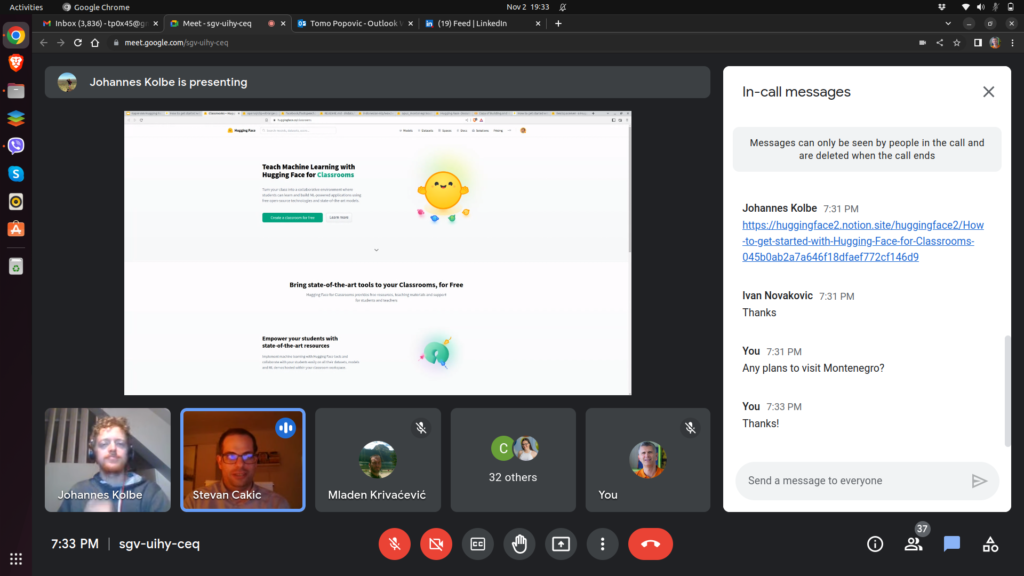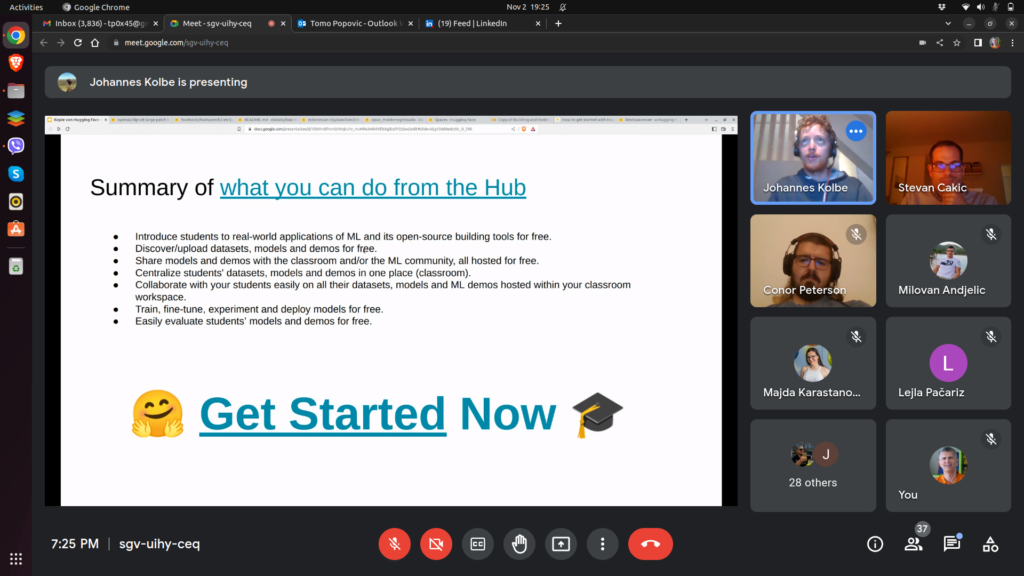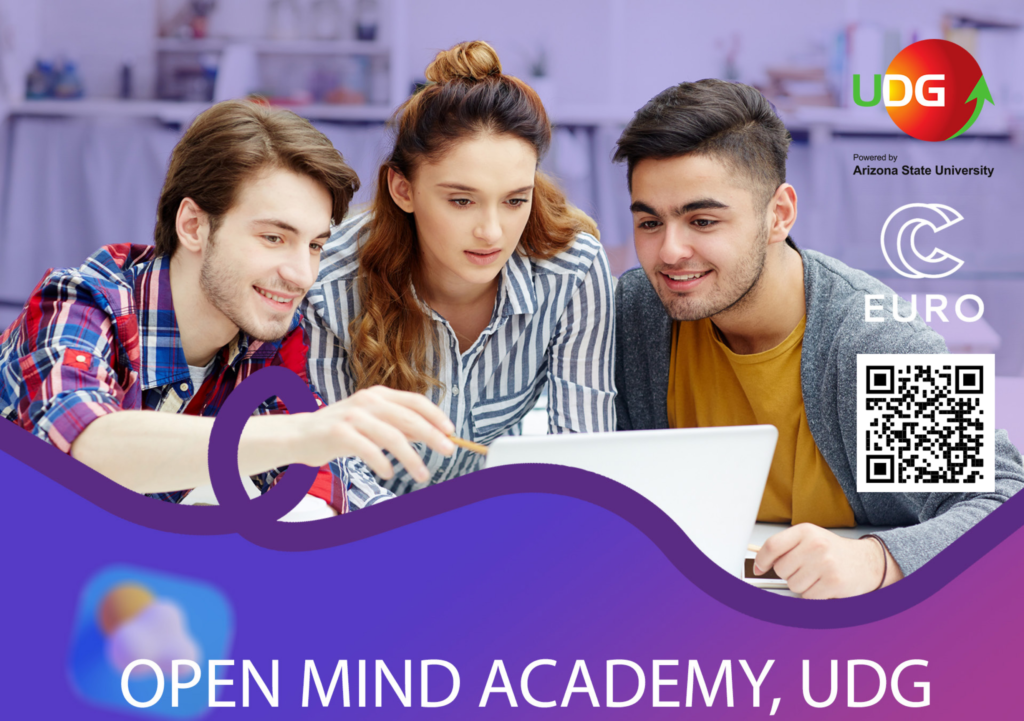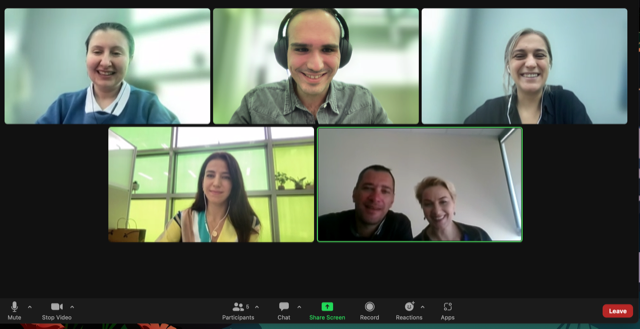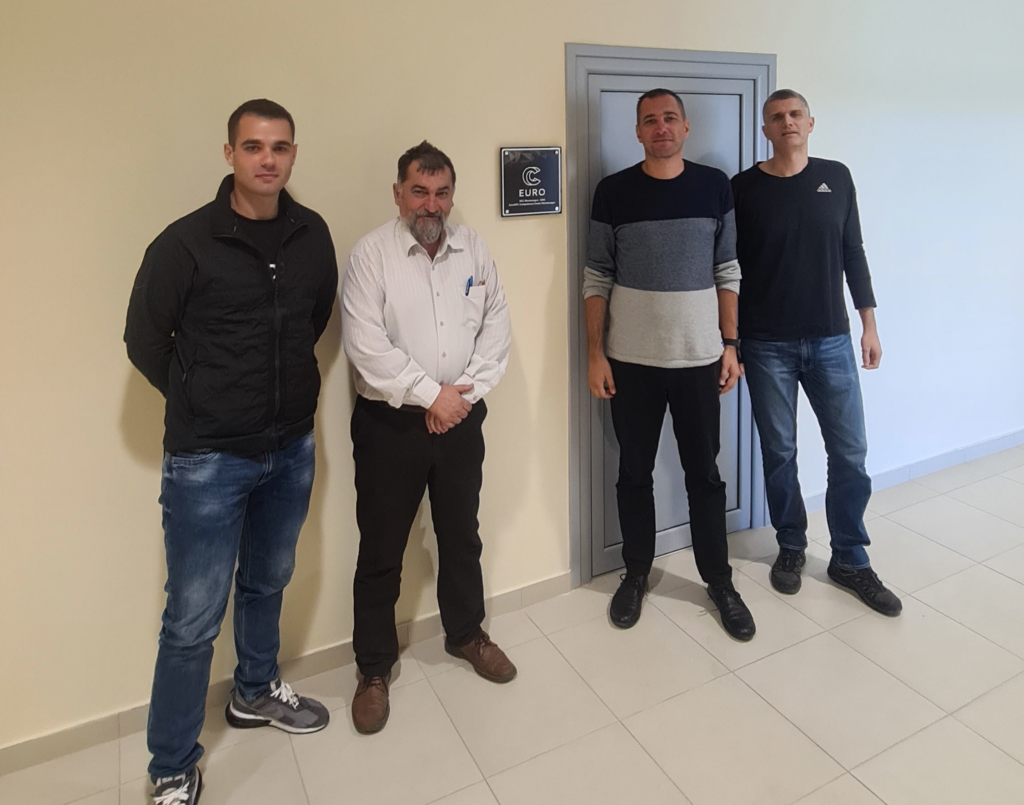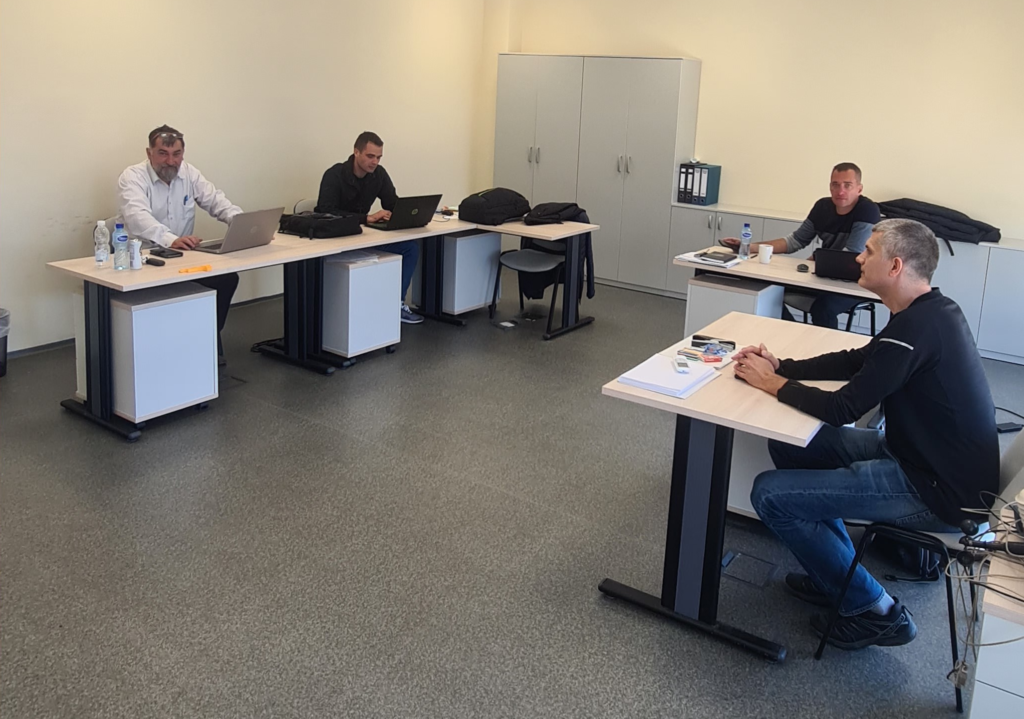As the first year of the new Master program in Artificial Intelligence at the Faculty for Information Systems and Technologies, University of Donja Gorica, is behind us a second generation has been enrolled. They will be attending courses on Mathematics, Data science, Digital transformation, Advanced programming, History of ideas, Research methodology.
Our first generation students worked hard both in theoretical and practical aspects of the curriculum. Some of the students took part in research projects and some have already presented their first papers at scientific-technical conferences. This year the will be attending Deep Learning and Parallel Computing courses that will be implemented with the support of NCC Montenegro and partners from EuroCC.



